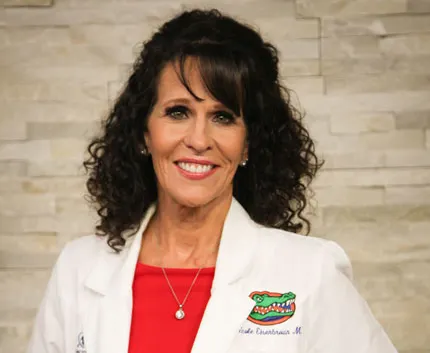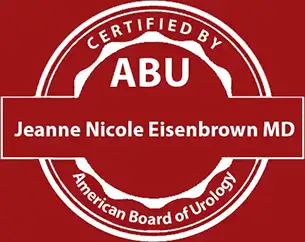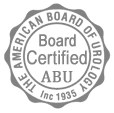Learn when ED commonly begins and what men can do to prevent it.
Erectile dysfunction (ED) is a topic many men avoid discussing—until it becomes impossible to ignore. While ED is more common with age, the truth is it can begin much earlier than most people think. At Amore Medical, we believe in proactive care and open conversation about sexual wellness at every stage of life.
In this article, we’ll explore:
- When ED most commonly begins
- Why age isn’t the only factor
- What you can do to prevent or delay ED
- When to seek help and what treatment options are available
Whether you’re in your 20s or your 60s, understanding ED and how to protect your sexual health now can make all the difference later.
What Is Erectile Dysfunction?
Erectile dysfunction is defined as the inability to achieve or maintain an erection firm enough for satisfactory sexual activity. It can present as:
- Difficulty getting or keeping an erection
- Reduced sexual desire
- Anxiety or frustration during intimacy
- Avoidance of sexual situations due to embarrassment
ED isn’t just a physical issue—it can affect mental health, confidence, and relationships.
At What Age Does ED Usually Start?
There’s a common myth that ED only affects older men. In reality, ED can begin at any age, and younger men are increasingly reporting symptoms.
ED by the Numbers:
- In their 20s and 30s: Around 8–10% of men report ED. Often caused by psychological or lifestyle factors.
- In their 40s: About 40% of men experience some form of ED.
- In their 50s: The number jumps to over 50%.
- In their 60s and beyond: Up to 70% of men may struggle with ED.
These numbers show a clear trend: the risk of ED increases with age—but it’s not inevitable, and it can happen earlier than expected.
Why ED Happens at Different Ages
Erectile function depends on a complex interaction of blood flow, hormones, nerve signaling, and mental state. Disruptions in any of these areas can cause ED—regardless of age.
Here’s how ED tends to appear across different decades:
In Your 20s & 30s:
Men in this age group are typically healthy, so ED is often psychological or lifestyle-related. Common causes include:
- Stress or performance anxiety
- Depression or low self-esteem
- Alcohol, drug use, or smoking
- Overexposure to pornography
- Poor sleep and diet
- Early signs of chronic illness (like diabetes)
While less common, ED in younger men is on the rise—often due to poor lifestyle habits and high stress levels.
In Your 40s:
This is often when physical causes begin to show up. Men may notice changes in:
- Circulation and heart health
- Blood pressure or cholesterol
- Testosterone levels
- Body weight and metabolism
Even mild health issues can affect erectile function. If ignored, these early symptoms may worsen over time.
In Your 50s & 60s:
ED becomes more prevalent due to aging-related changes:
- Slower blood flow and nerve response
- Hormonal decline (especially testosterone)
- Higher risk of diabetes, heart disease, and prostate issues
- Medication side effects
While ED is more likely in this age group, many men remain sexually active with proper care and treatment.
What Are the Early Signs of ED?
Regardless of your age, catching the early signs of ED can help you prevent long-term issues. These include:
- Taking longer to get an erection
- Trouble staying firm during sex
- Reduced sensitivity or pleasure
- Lower interest in sex
- Anxiety or frustration around intimacy
If these issues persist for several weeks or more, it’s time to talk to a provider.
How to Prevent ED at Any Age
ED is not always preventable, but in many cases, lifestyle changes and proactive care can delay its onset—or even reverse it. Here’s what you can do:
- Exercise Regularly
Physical activity boosts circulation, strengthens the heart, and supports testosterone production. It also helps combat stress and anxiety.
Goal: 150 minutes of moderate aerobic activity per week, plus strength training.
- Eat for Sexual Health
A diet that supports heart health also supports erectile health. Focus on:
- Leafy greens, berries, and whole grains
- Lean protein (chicken, fish, legumes)
- Healthy fats (olive oil, avocados, nuts)
- Avoid processed food, sugar, and excess alcohol
- Manage Stress & Mental Health
Chronic stress leads to high cortisol levels, which can interfere with sexual performance and hormone balance.
Try:
- Meditation or yoga
- Regular sleep schedule
- Therapy or support groups
- Reducing screen time and distractions
- Maintain a Healthy Weight
Excess body fat, especially around the waist, is linked to low testosterone, poor circulation, and insulin resistance—all ED risk factors.
Losing even 5–10% of your body weight can improve sexual function.
- Quit Smoking and Limit Alcohol
- Smoking narrows blood vessels and restricts blood flow.
- Alcohol in excess can impair nerve function and libido.
Quitting or cutting back significantly reduces your risk of ED.
- Get Quality Sleep
Sleep is when your body repairs and produces testosterone. Poor sleep can lead to fatigue, low libido, and hormonal imbalance.
Aim for 7–9 hours of quality sleep every night.
- Monitor Your Testosterone Levels
Low testosterone (Low T) becomes more common after age 30. Symptoms include:
- Low libido
- Fatigue
- Irritability
- Loss of muscle mass
- ED
At Amore Medical, we offer comprehensive hormone testing and safe, medically supervised hormone optimization plans.
- Avoid Recreational Drugs
Drugs like marijuana, cocaine, and opioids can all impair sexual performance by affecting blood flow and brain chemistry.
- Stay Proactive With Your Health
Regular checkups can help detect early signs of:
- Diabetes
- Heart disease
- High blood pressure
- Hormonal imbalances
Early treatment can prevent these from developing into ED.
When Should You See a Doctor?
You don’t have to wait until ED becomes a serious problem to seek help. In fact, the earlier you address it, the better the outcomes.
See a provider if:
- ED is consistent or worsening
- You notice changes in libido, performance, or erections
- You’re experiencing anxiety or frustration during sex
- You have a history of heart disease, diabetes, or hormone imbalance
At Amore Medical, we offer a private, judgment-free space to talk openly about your concerns and find a personalized solution that fits your lifestyle.
Treatment Options for ED at Amore Medical
We specialize in a range of modern, evidence-based treatments to help men of all ages regain confidence and control.
- Hormone Optimization
Low testosterone can be corrected with safe and effective hormone replacement therapy (HRT), tailored to your specific levels and symptoms.
- GainsWave® Therapy
This non-invasive, drug-free treatment uses sound wave technology to improve blood flow, stimulate tissue growth, and restore natural erectile function.
- P-Shot® (PRP Therapy)
Using your body’s own platelets, the P-Shot helps regenerate tissue and increase sensitivity, firmness, and overall sexual performance.
- Oral Medications
While natural and regenerative options are preferred by many, medications like Viagra® or Cialis® can be prescribed when appropriate.
- Lifestyle Coaching
We offer personalized support for nutrition, fitness, and stress management to support long-term improvement—naturally.
ED Can Start Early—But So Can Prevention
The truth is, ED doesn’t begin at a specific age—it starts with your habits. The earlier you take care of your heart, hormones, and mental health, the better your chances of maintaining a satisfying and healthy sex life well into your later years.
Whether you’re starting to notice subtle changes or simply want to be proactive, Amore Medical is here to help. Our team offers expert guidance, advanced therapies, and compassionate care for every man at every stage of life.
📍 Located in Altamonte Springs, FL
📞 Call today or book your consultation online
To schedule your appointment, call 407-212-9532 or contact us online today.
\


















